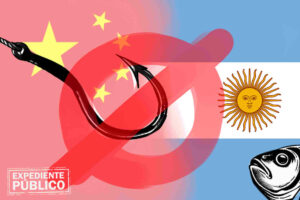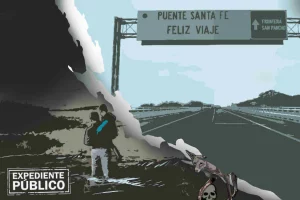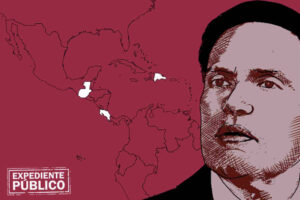*All matters related to Huawei and Hondutel falls under a confidentiality clause, according to reports on access to public information.
**The manager of the telecommunications company, José Morales revealed the implementation of 911 technology, which involves facial and plate recognition created by the Chinese with the intention of increasing the influence of China in countries like Panama, Ecuador, and Bolivia.
***The lack of transparency prevents measuring risks regarding the types of technology acquired, the levels of access to them that citizens and the government have, and why they are being used.
Yarely Madrid | Expediente Público
Through a request for access to public information, Expediente Público learned that the Honduran Telecommunications Company (Hondutel) and the Chinese company Huawei signed a memorandum of understanding (MOU), which included a confidentiality clause that forces the Honduran state-run company to keep the relationship secret.
Moreover, Hondutel, through a resolution, requested that the Institute for Access to Public Information (IAIP) reserve all information related to the government’s strategic partnerships.
Sascha Hanning, a specialist in Chinese affairs, told Expediente Público that not having access to any sort of documentation on this relationship increases distrust between the Honduran government and its citizens.
MOU forces Hondutel into secrecy
According to information obtained by Expediente Público, there is just a MOU between Huawei and Hondutel, which includes a confidentiality clause, stating that “neither party shall make public reference, in any way, to a third party or disclose or make public reference to the mere fact that the parties are discussing or intend to discuss the matter hereof or the possibility of entering into any business or any other relationship.”
Hondutel also cannot say if it “has initiated, is thinking about initiating, or has ended any business or relationship” with Huawei.
“Deducing from the above, the interference of private parties in the aforementioned scheme could represent the failure of successful negotiations for both Hondutel and citizens in general,” the end of the document warns.
Regarding the “partnership” for Huawei to lend equipment to the heart of Hondutel, José Antonio Morales, manager of the company, explained to Expediente Público in April that the document states that through Resolution No. SO-150-2018 of August 2, 2018, “the Institute for Access to Public Information granted the reservation of information related to strategic commercial partnerships of this company.” In other words, this type of information will not be accessible either.
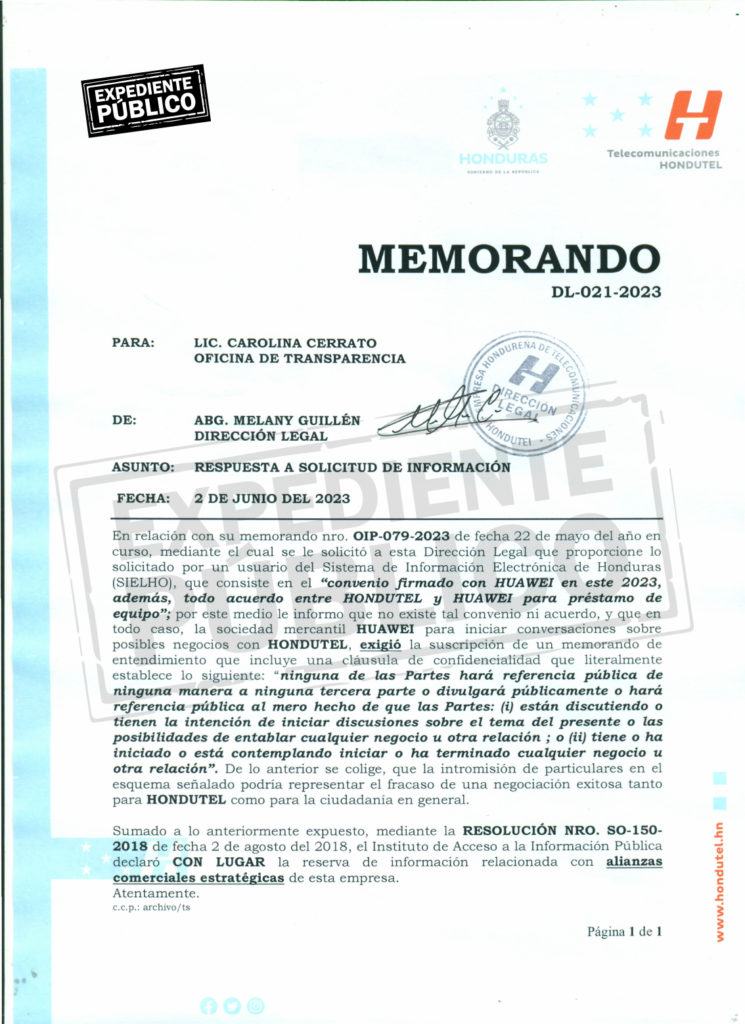
Read: La estrategia de la avanzada china en Centroamérica
What do Huawei and Hondutel want to hide?
Sascha Hanning, Chilean analyst and expert in Chinese affairs, indicated that “in no country should there be levels of confidentiality, especially regarding the provision of technology, which does not make sense to keep confidential.”
“When those reasons or contracts are not public information, distrust can increase between citizens, the world, the press, those who are in charge of informing the public, and the government and administration that are in power,” Hanning explained.
The expert considers that a policy of no transparency “also makes it more complicated to measure risks because we do not know which types of technology are being acquired, how much access will be given to citizens and the government, and the purpose of the technology.”
Government surveillance
José Morales told the national media in a press conference that the 911 emergency line will include the implementation of surveillance cameras at the national level, along with “facial and license plate recognition.”
“There is going to be an update to a new version of software that would have cutting-edge technology like facial and license plate recognition, analytical tools, and data analysis, which are global standards,” he announced.
While the manager of Hondutel did not explain who would provide this update of the 911 emergency system, the technology was implemented by Chinese companies through “BOL-110,” the emergency system in Bolivia, under the mandate of former President Evo Morales (2006-2019).
“This technology has been utilized to help the regime to surveil the Bolivian population. In fact, it was used in April 2020 to help the government digitally track those suspected of having COVID-19, forcing them to put on information-gathering bracelets connected to the system,” explained an article from Dialogue of the Americas.
The case of Ecuador
Expediente Público interviewed the Ecuadorian journalist, Cristián Zurita regarding the emergency system ECU-911, which was created by the Chinese companies of Huawei and CEIEC.
Zurita explained that the 911 line did not spy on the South American citizens as such, but rather, “its creators wanted it to seem like there was a technological system that could follow and investigate; everyone was afraid that the system could be used to persecute citizens, but in reality, it did not have the ability to do so.”
“The analysis of images was supposedly sold to you as a system in which one could identify individuals by their facial features. When they put up all the cameras, they were going to have this analytical software, but it was never installed. Ecuador never had the capacity to perform this analysis or track you through facial recognition,” he clarified.
When reports of contracts with the Chinese company publicly came to light in Ecuador, “it was found that the technology purchased was overpriced, the software was inefficient and contrary to what the Chinese had promised, unreliable, and the equipment was of poor quality,” Zurita said.
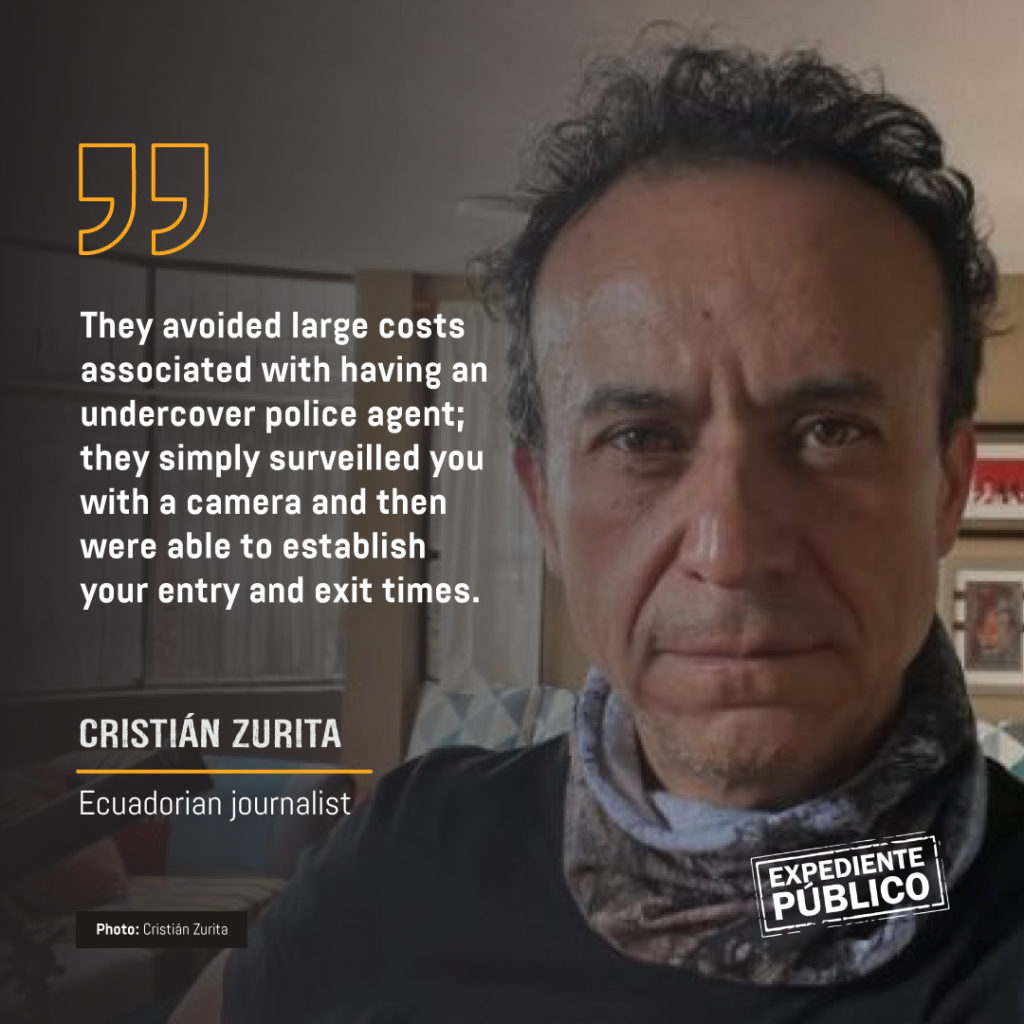
The ECU-911 system worked like a mirror
Zurita explained to Expediente Público that “what the 911 cameras did was mirror the videos from the surveillance cameras that were showing up in the 911 call center to appear as images that were sent to the Center for National Intelligence under the directive of the National Security and Defense Council.”
“They simply followed you with one camera and established your entry and exit times, which is something that can be done,” detailed Zurita.
“You would observe that you were indeed being followed, but you would think it was happening through the 911 call center because of the surveillance cameras. It was a very basic tactic carried out by people who were otherwise basic,” he continued.
Huawei and its businesses in Panama
In 2017, Panama established diplomatic relations with communist China, and a year later, the Center for Security and Emergency Operations (COE in Spanish) in Colón, Panama, was inaugurated on the Caribbean coast. Huawei Communications is the company that executed the agreement.
The project was non-reimbursable and cost approximately ten million dollars. The structure was a copy of the model used in “Secure Shenzhen,” a city located in Southeastern China in the Delta of the Pearl River and at the border with Hong Kong.
The C2 was equipped with state-of-the-art technology, including 291 surveillance towers, high-resolution cameras, 11 panic buttons, five roadside arches with license plate readers, video and facial analysis, and dispatch systems.
Shenzhen is the headquarters for many surveillance companies that target the Uyghurs, a predominately Muslim minority group in the region of Xinjiang.
One of these companies is Huawei, according to an investigation by The Washington Post, which claims that through facial recognition and artificial intelligence, the company created a surveillance system that now abuses the human rights of millions of Uyghurs.
China and its model
Sascha Hanning is of the opinion that China intends to present its model of citizen control as the model that prioritizes security for freedom.
“In this sense, an entire system has been created in which people are controlled by the government not only in general but also at the individual level, and for this reason, facial recognition has been established not to identify if someone is breaking the law by jaywalking but, rather, to know who that person is, who their family is, and what their ‘social credit’ is,” he underscored.
“What is worrisome is the final goal for which the data is being used. Is the surveillance camera footage going to be used to identify a thief who has just robbed a house or detect a person who disagrees with the government as a dissident, i.e., knowing where he or she is, who his or her friends and family are, and his or her place of residence. That is the big risk. The question is always about why these technologies are being used and who is behind them,” he said.
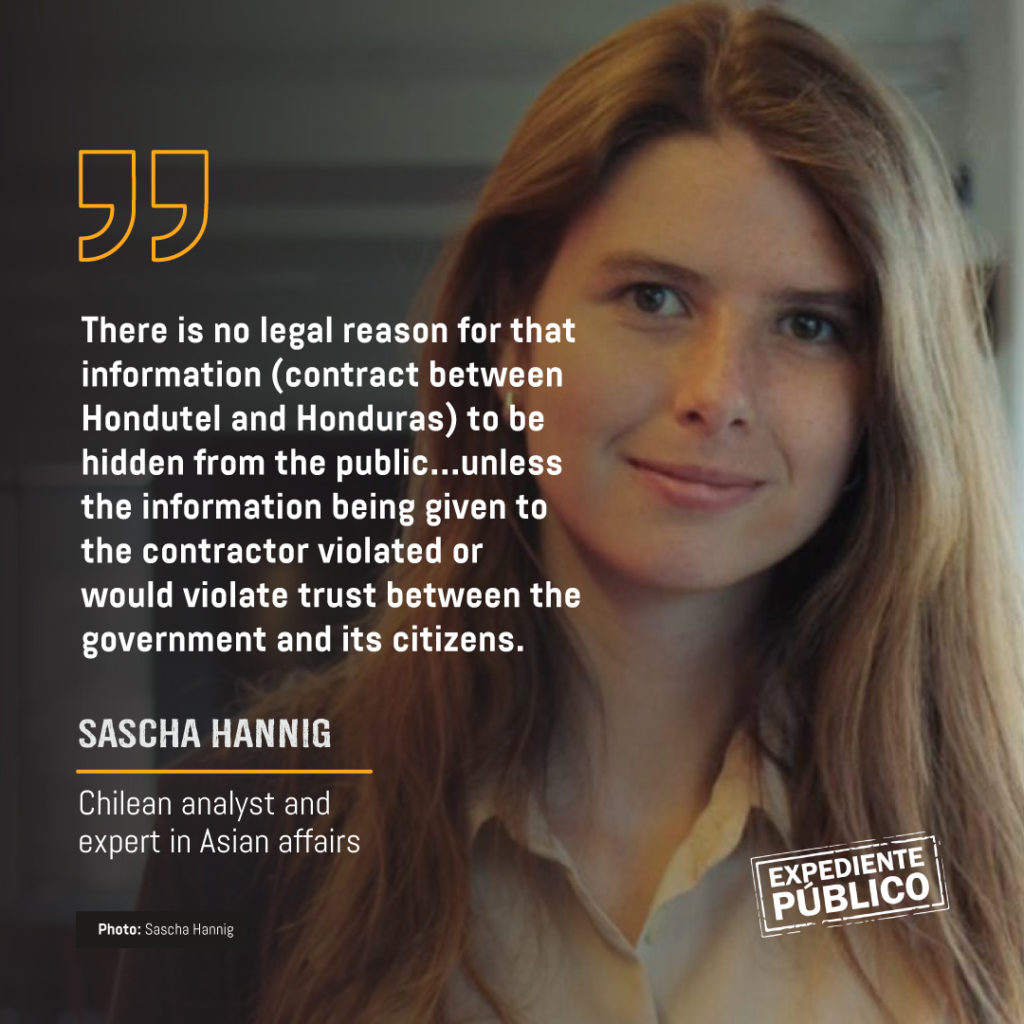
Also read: China seduce al periodismo hondureño
Hondutel’s contradictions
In a previous investigation, Expediente Público highlighted, following statements from José Morales, that Huawei, in its role as creditor, could access the Data Center, Center of Operations, and Center of Communications of Hondutel.
Expediente Público also published an interview of the manager of the state-run company, where he states that Huawei would have access to the aforementioned areas of the business.
In the days that followed, Hondutel published a statement, which said that “such claims were false” but that in any event, “Huawei was a strategic partner for telecommunications operations.”
“The databases of Hondutel and the 911 National Emergency System, as well as financial information will not be managed by the Chinese company through which only state-of-the-art technology and low-cost equipment will be obtained by means of agreements for the installation of wireless networks in residential sectors,” states another part of the document that was deleted minutes later by Hondutel.
Back-checking
Expediente Público contacted the former head of Hondutel, Jorge Aguilar, who stated that the data center is “the heart of Hondutel databases, where all clients’ names and telephone numbers are stored by the company.”
However, he pointed out that it would not be a risk for national security, given that the number of Hondutel clients who had landlines was very small.
When asked if Huawei, in having access to sensitive data from Hondutel, would also have access to data from Tigo and Claro, the mobile phone companies in Honduras, the manager said “no,” “because they are different companies.”
“Each company has its data center, and each company has its database. The phone calls are the only shared dataset, but the volume of call traffic should be falling because callers are at home and call other mobile numbers, instead of using landlines, so each individual manages the information within each network,” responded Aguilar.
While he conceded that these two companies used Huawei equipment, “it remains to be seen which equipment they use, what its capabilities are, and how it could be used to extract information.”
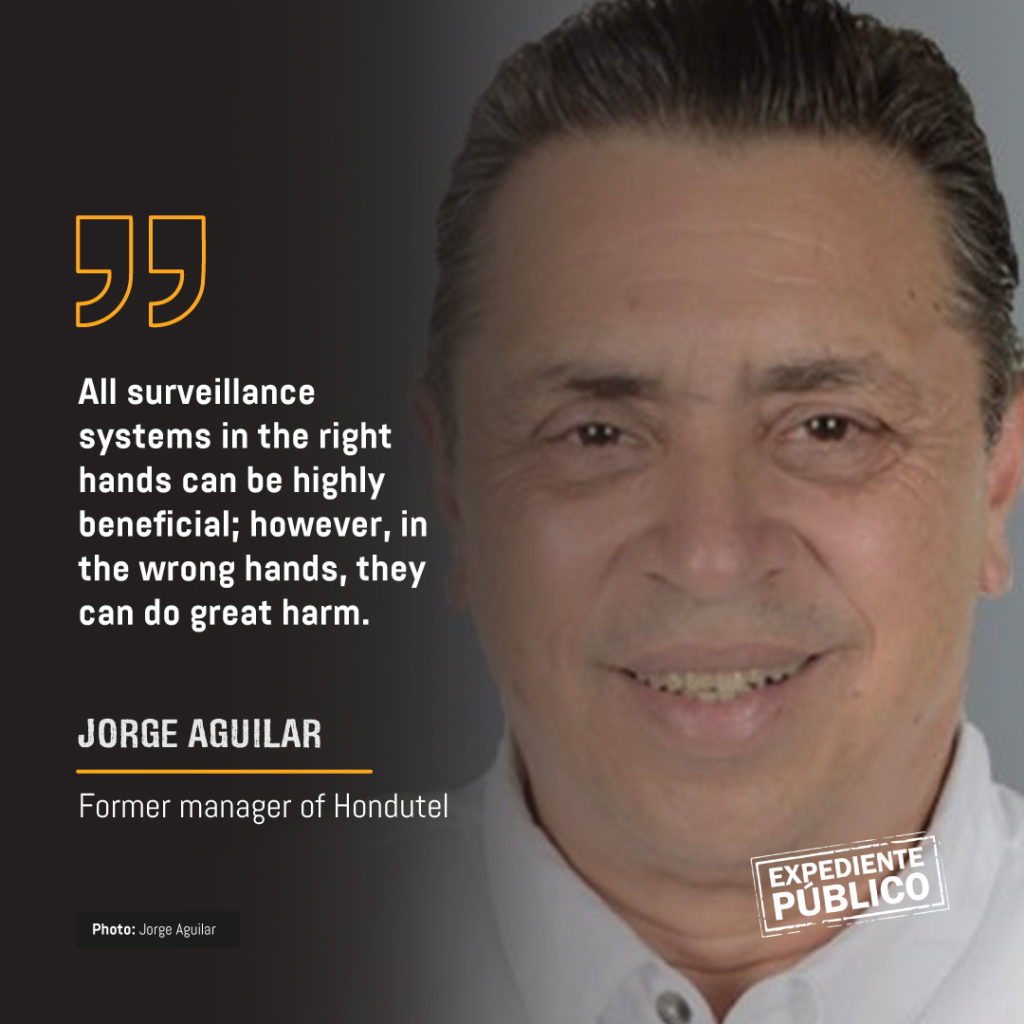
What about the 911 emergency system?
Regarding the 911 emergency line, the former manager explained that a huge PBX or private telephone network is installed in one of the central offices of Hondutel.
“One would have to verify where the 911 system was installed to see if that information is passing through Huawei’s equipment,” he said.
“There is very little 911 traffic. I don’t think that it goes through Huawei. I don’t think that the volume of traffic is great enough to make the data sensitive. While I am not saying that it is not possible, I don’t know at what point such a factor could become dangerous,” he continued.
In the case of surveillance, Aguilar said that in Honduras, there is technology that can connect to the cameras, but he did not know if this type of equipment could be, for example, hacked.
Expediente Público tried to get in touch with Oscar Castro, the director of marketing for the Sociedad Mecantil Dynamic Corporation Corp. (the company that managed the 911 system before Hondutel) so that he could explain how the emergency call apparatus in Honduras worked and if there was an opportunity for Huawei, as creditor of the Honduran telecommunications company, to access the 911 line and surveillance cameras. But he did not answer.
The manager of Hondutel visited Huawei
In her most recent visit to China, the Honduran President Xiomara Castro, who was also accompanied by her diplomatic delegation, including José Morales, attended the Center for Research and Development at Huawei in Shanghai, located in the eastern part of the country.
Morales tweeted about the visit, “I thank President Xiomara Castro for considering Hondutel Telecommunications in this historical event, as support from the Chinese government in this sector is very important for what we want to do. Hondutel is the company of the Honduran people. LET’S TAKE IT BACK.
Also read: Honduras “se vende al mejor postor” al romper con Taiwán
Walking a fine line
For Sascha Hanning regarding Chinese companies, “the line that separates the private world from the public world is so fine that sometimes it is crossed; there are no guarantees.”
“The issue is that there are no legal guarantees. There aren’t even any guarantees that this or any other Chinese company will, by order of the Chinese Communist Party, not have to hand over personal data to the government eventually” she warned.


